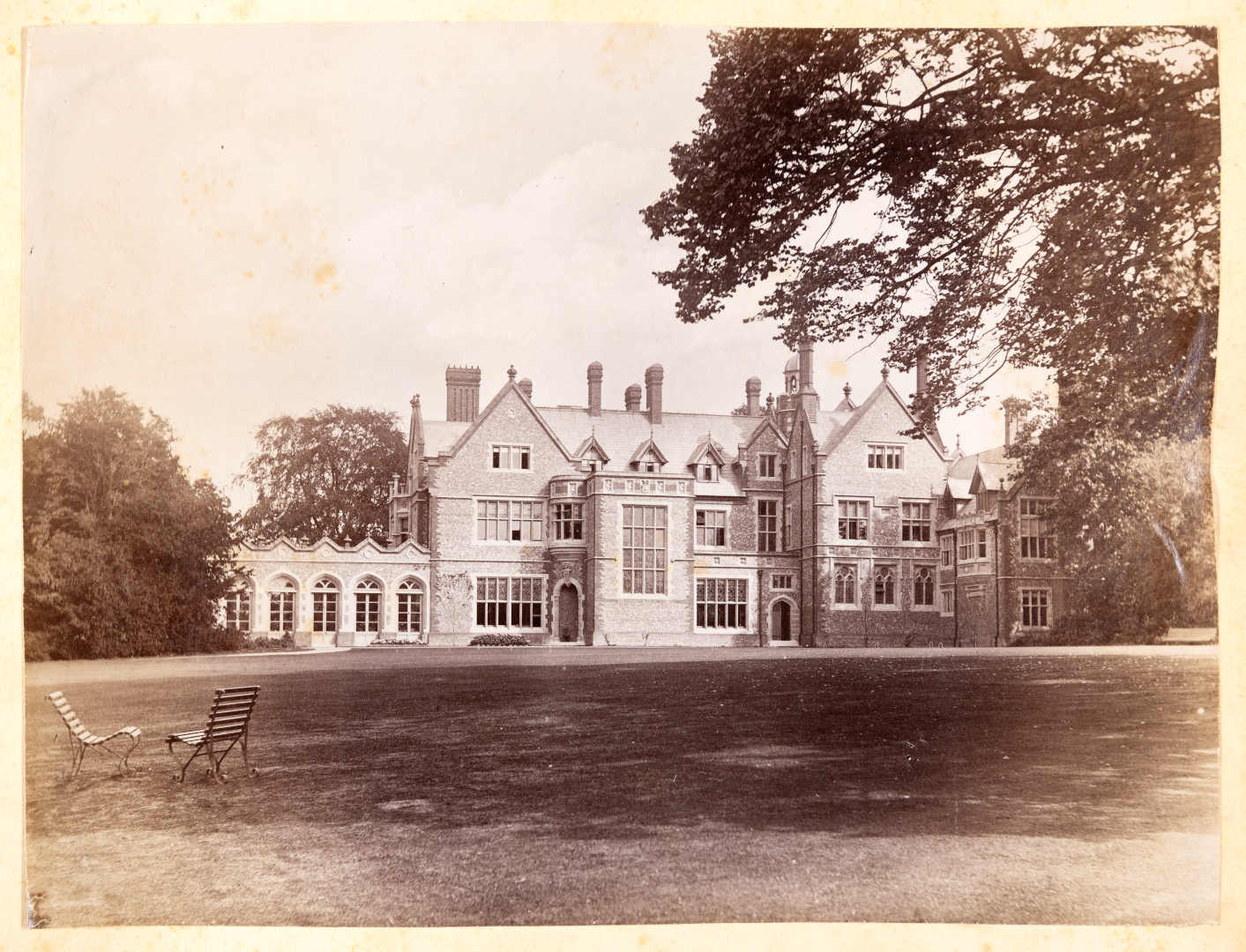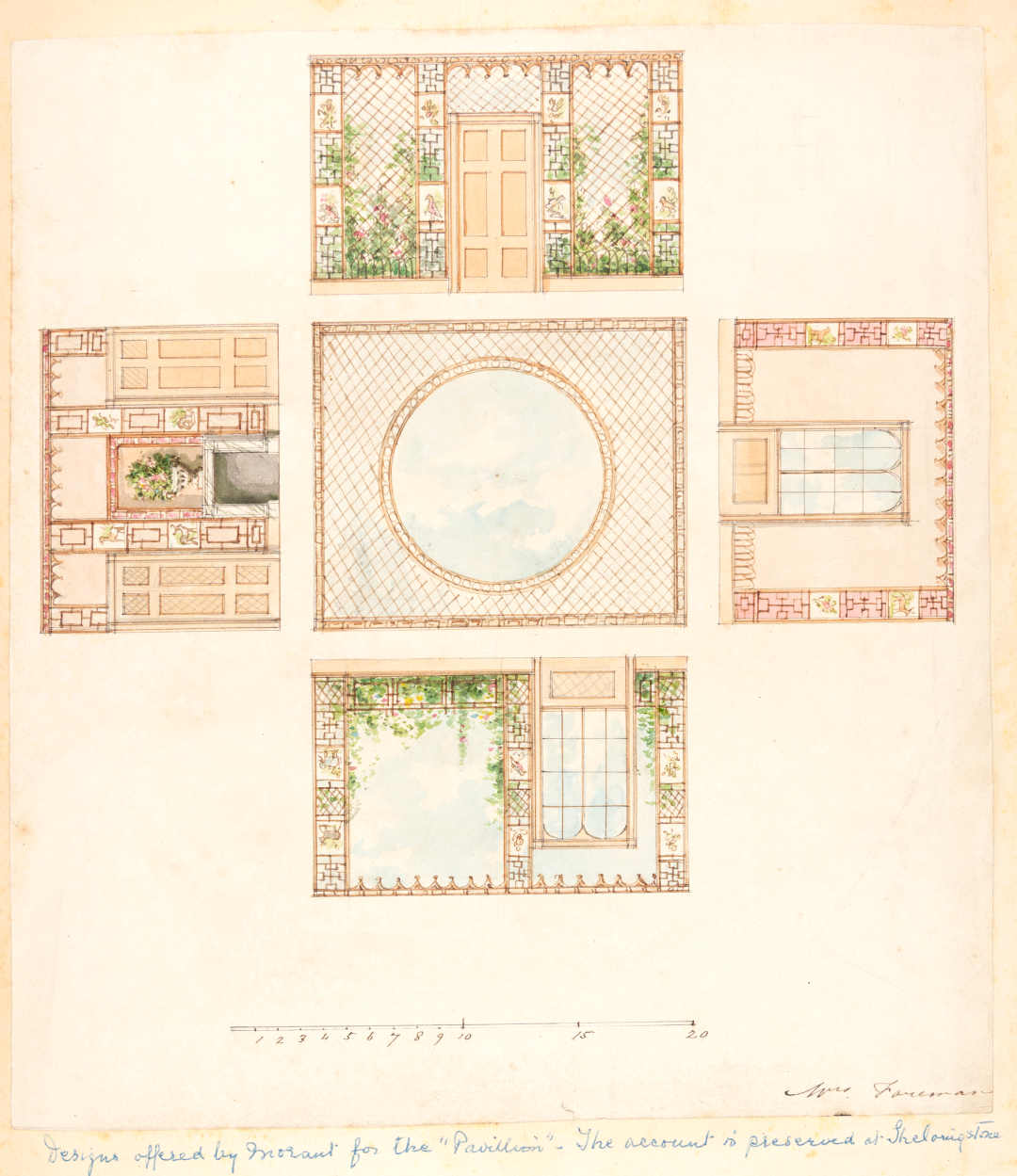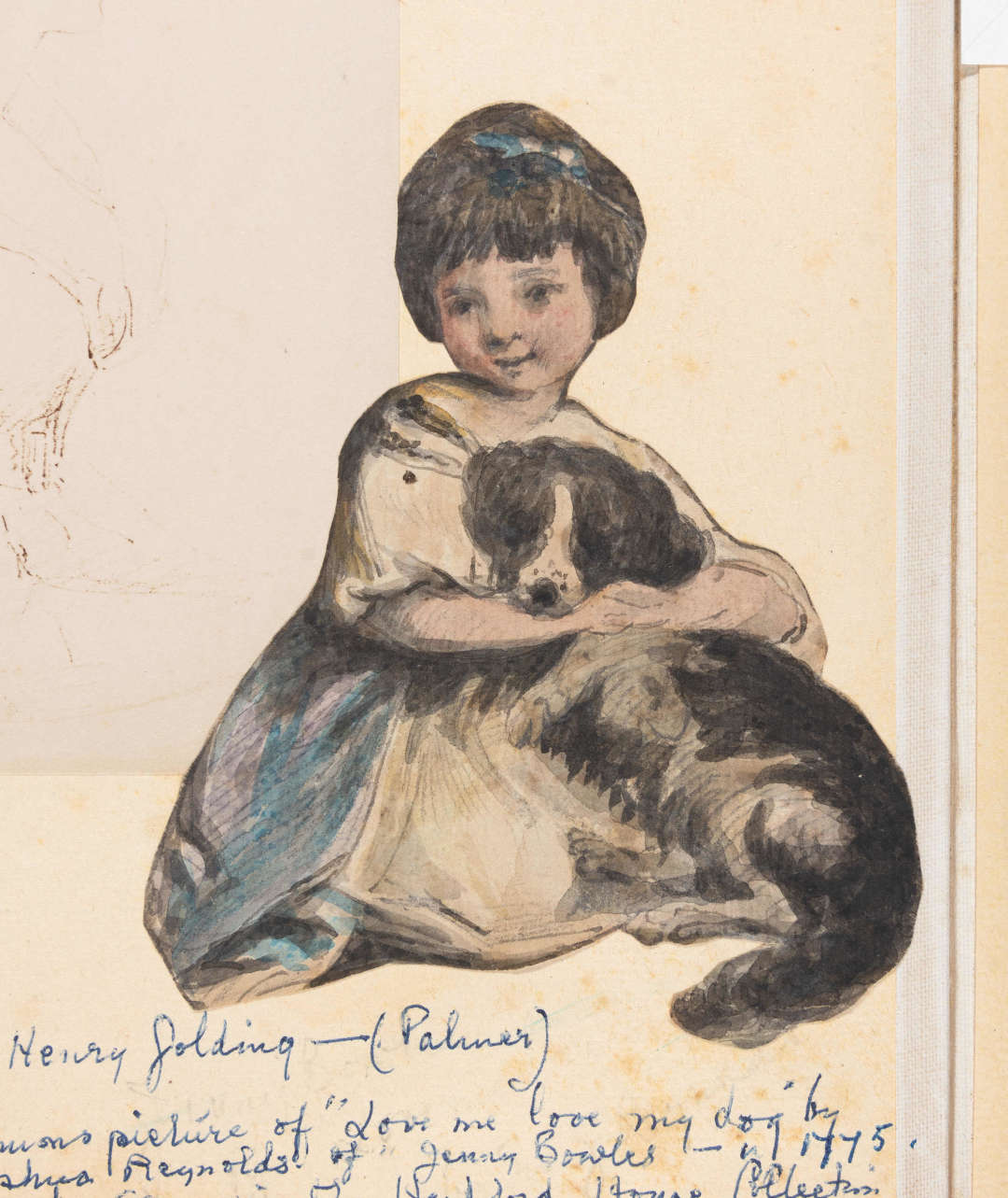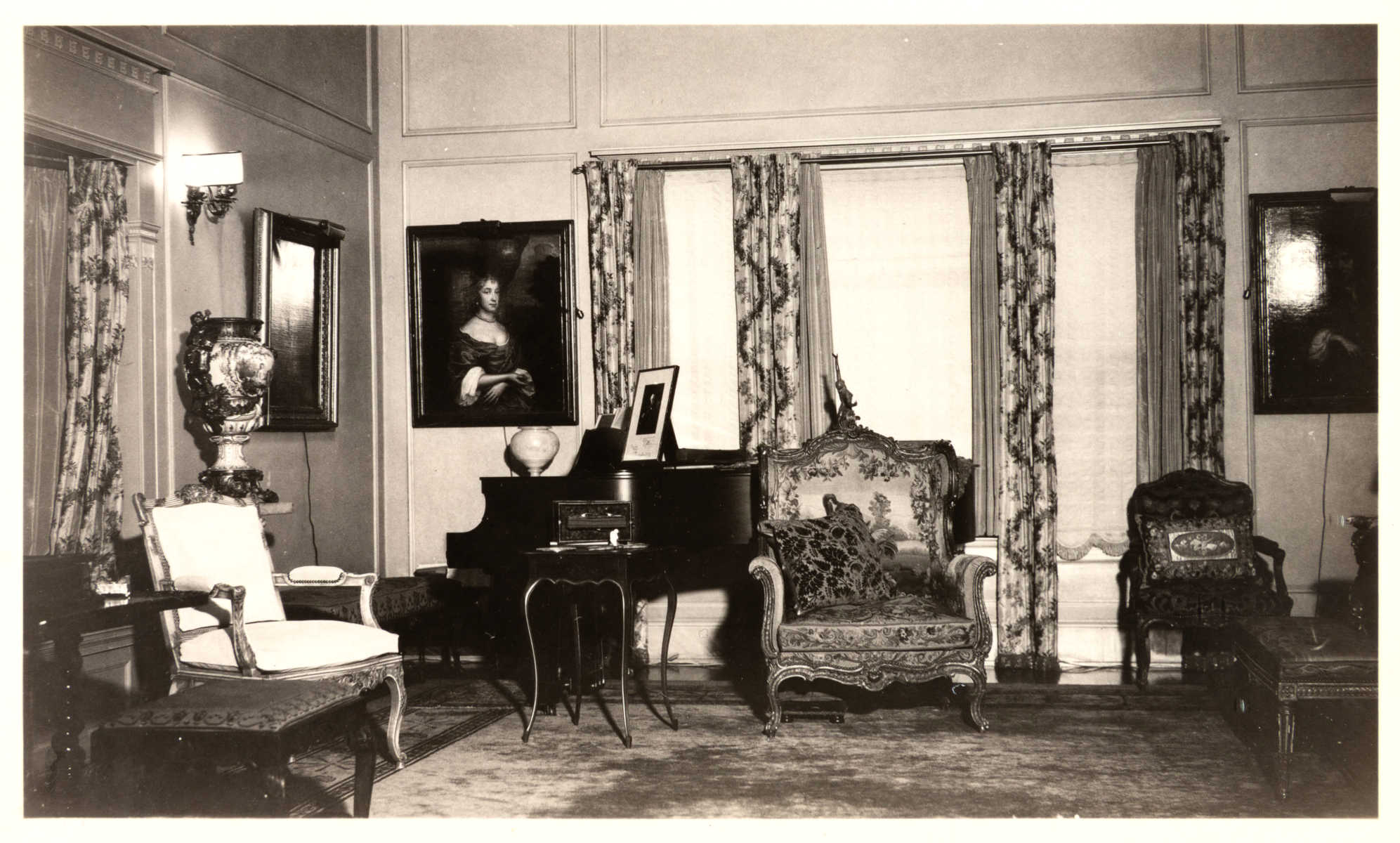This is the latest round up of items and collections that have recently been catalogued at the BRO and are now available to view - catalogue references are given in brackets. You can use our online catalogue to find out more about these and other items in our collections.

Mansions up close - Holme Park
The small but interesting collection of papers of Margaret Williams, nee Ewen, c.1822-1967, relates largely to Holme Park, Sonning (D/EX2645). Margaret, who was born in 1897, grew up at Holme Park in the care of its owner, her widowed aunt Mary Isabella Golding Palmer. Margaret’s photograph album contains a number of views of the mansion and its contents, plus some beautiful designs by George Morant for a relative (Mrs Foreman)'s house called The Pavilion at Farnborough Hill in Hampshire, n.d. [c.1822].

The Foremans (merchant Luke and wife Mary) are well known to historians of furniture and interior decoration for their fine collections. The family were also related to Jane ‘Jenny’ Bowles, who as a child sat with her pet dog for a famous portrait by the 18th century artist Joshua Reynolds.

A small collection of photographs of the interior of The Oaks (later Little Paddocks), Sunninghill, c.1915-1920 show furniture, paintings, embroidery samplers and decorative details while the house belonged to Colonel (later Sir) James Nockells Horlick of drinks company fame (D/EX2780). Negatives of Queensmead House, Windsor, 1935-1936, and its hallboy Victor Winter are accompanied by a copy of the latter’s memoirs (D/EX2893).

Unpleasant huckstering: parking, electricity prices and a shortage of fish in wartime Abingdon
The letter book of Abingdon Chamber of Trade, 1931-1946 (D/EX2591), is unfortunately too fragile for consultation at present, but contains a wealth of information about the town. The Chamber supported small shopkeepers and tradesmen in getting debts paid, supplying lists of tradesmen to enquirers, etc. Particularly interesting letters include one to the Electricity Commissioners complaining about the 'abnormally high' cost of electricity in the Abingdon district, being 'completely out of proportion to to-day's cost of living', April 1931, complaints which recur a number of times. A letter to HM Office of Works in October 1931 complains about damage caused to Abingdon Town Hall by street traders visiting Abingdon on market days who regularly drove nails into the masonry and engaged in 'unpleasant huckstering'. In October 1931, the Chamber asked the local MP, Sir Ralph Glyn, to press for the taxation of co-operative societies, which they saw as having unfair advantages over profit-driven shops.
In 1934 they wrote to the Traffic Commissioners in support of a licence being granted to Newbury District Motor Services Ltd to run a bus service from Newbury to Abingdon, and to the Chief Constable to express the Chamber's 'alarm' at proposals for one way traffic restrictions in Broad Street and Stert Street, Abingdon. The one way system was duly implemented but continued to cause problems, 1936-1937. In March 1937 they wrote to the Town Clerk to complain that street stallholders at the Abingdon Fairs blocked access to shops. Also in March 1937, they asked Oxford Motor Bus Services to put on a bus service from Marcham, in light of the new Woolworths store in Abingdon which the Chamber expected many people would wish to visit. In October 1937 they asked the Post Office to reduce the cost of telephone calls from Boars Hill to Abingdon, and the Town Clerk to speed up negotiations to free Sutton Courtenay Toll Bridge from tolls. The availability of free car parking in the borough was another concern, August 1937-December 1938; and one letter dated December 1938 to the Town Clerk suggested that the borough should charge the bus company for the area allocated for bus parking 'as such space could be used by persons who come into the town to do their shopping'.
With the outbreak of war in 1939 they feared 'owing to the National Emergency, it may be that the Chamber of Trade will be unable to function during the War time'. However, they were able to complain that the Chamber had not been consulted when the borough's Food Committee was established, September 1939. Other wartime letters relate to cheese sold at the Home Guard Canteen to third parties, March 1941; complaints that market traders were not subject to the same petrol restrictions as shopkeepers, December 1942-January 1943 (one letter excludes the fishmonger from the complaint as fish was 'otherwise practically unobtainable'); preparation for air raids, December 1942-June 1943; letters to the Town Clerk asking to be involved in post-war planning, January and June 1943; a request for street trading to be banned during the war, January 1943; urging the relaxation of the Fire Watching Regulations in Abingdon, December 1943; and a letter promising help with the ''Salute the Soldier'' Week, May 1944.
You can find out more about any of the records mentioned here and more, by searching our online catalogue. Simply enter the collection references mentioned above into the Catalogue Reference field.
